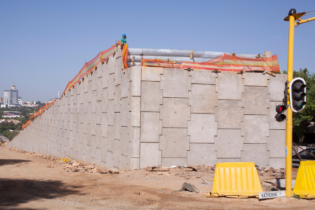A focus on transformation
“We will be perpetuating poverty and instability if we do not take deliberate steps to grow and develop contractors from historically marginalised groups. There is a relation between the pace of development and sustenance of society. The have-nots will rise against the haves if we are not deliberate about transformation,” said Nhleko. Nhleko said that the country has to mobilise and coordinate resources towards meeting its overall objective to eradicate poverty, inequality and underdevelopment while also being conscious about the need to remove impediments for small medium and micro enterprises to grow.Responding to numerous complaints about degrading of emerging contractors by the CIDB, the minister expressed confidence that the transformation programme that will be rolled out by the board responds adequately to the concerns of emerging contractors.
“A moratorium has been placed on downgrading. Further measures to deepen transformation within the construction industry will be communicated to stakeholders when the CIDB board embarks on its countrywide outreach programme,” said Nhleko. Chairperson of the KwaZulu-Natal Contractors Forum, Sanisani Mkhize added, “Contractors can no longer afford to wait for payments for over two years. The set-asides for historically marginalised contractors give us hope that real empowerment which has evaded us and benefitted big business is about to happen,” he said. His view was echoed by women contractors Zandile Ncala and Thandi Mchunu who said that they are encouraged by the resolve to advance transformation within the construction and property sectors. Ncala appealed to the CIDB to show teeth and deal harshly with collusion while Mchunu proposed a rotation system for awarding of tenders and ring-fenced projects for women contractors.






